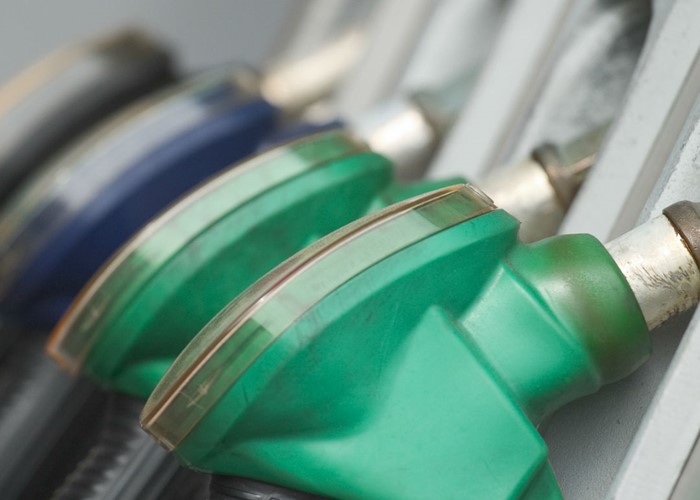Remote areas in line for 5p cut in fuel prices

An island fuel rebate, which already saves some drivers in remote areas up to 5p a litre, could be extended to some parts of the UK mainland.
Drivers in remote areas of the UK mainland could soon receive a fuel discount under new Government plans.
Chief Secretary to the Treasury, Danny Alexander, wants to extend an existing island fuel rebate scheme which gives drivers in the remote Isles of Scilly and some Scottish islands up to 5p per litre off petrol and diesel prices.
Why should some drivers pay less?
The cost of transporting fuel to remote areas is much higher than places that are well connected, which leads to higher prices at the pumps for these communities.
The fuel discount was introduced in March last year and applies to the Hebrides, Northern Isles, islands in the Clyde and the Isles of Scilly.
Fuel retailers in these areas can register with HMRC and claim up to 5p per litre relief on fuel every month.
Hoops to jump through
The UK Government needs to get permission from the EU to extend the scheme, as a discount on the standard rate of fuel duty requires exemption from the EU Energy Tax Directive.
So the Treasury is calling on 1,500 fuel retailers in 36 counties across the UK to submit information about their prices in order to put together a case to bring to the European Commission.
Why is the idea being pushed?
Danny Alexander is the big name pushing the campaign.
The MP hails from the Highlands so has sympathies for the troubles remote communities face.
He says for people in isolated areas, driving is not a choice, but a necessity. And while it won’t be an easy road to convince the European Commission, he will do everything he can to make the discount extension happen.
Which areas are being considered?
Fuel retailers in the following areas have been asked to participate:
England - Cornwall, Cumbria, Devon, Herefordshire, North Yorkshire and Northumberland.
Wales - Gwynedd, Isle of Anglesey, Monmouthshire and Powys.
Scotland - Aberdeenshire, Angus, Argyll and Bute, Dumfries and Galloway, Highland, Moray, Perth and Kinross, Scottish Borders and South Ayrshire.
Northern Ireland - Antrim, Armagh, Ballymena, Ballymoney, Banbridge, Coleraine, Cookston, Down, Dungannon, Fermanagh, Larne, Limavady, Magherafelt, Moyle, Newry and Mourne, Omagh and Strabane.
The Treasury said that it wanted to use the information submitted to identify the areas where prices were comparable to those on the islands, which fall under the current rebate scheme.
Retailers invited to submit evidence that have similar or higher pump prices in the last quarter of 2012 will qualify. The Government has said fuel priced less than the average (shown below) are unlikely to be accepted.
|
|
October 2012 |
November 2012 |
December 2012 |
|
Unleaded petrol |
144ppl |
143ppl |
139ppl |
|
Diesel |
148.5ppl |
148ppl |
145.5ppl |
Is it fair?
I’m all for a reduction in fuel duty for those that live in remote areas.
But I think many will feel forgotten or left behind. There is no real definition from the Government on what constitutes a remote area or even the criteria that led to the 36 counties being picked.
That said if the reforms do manage to go through, it will set a precedent that might help to push through more allowances later on which could benefit more people.
Pressure group FairFuelUK has been campaigning for a fuel duty cut for years and is calling for the reduction in fuel duty to be nationwide to help stimulate the economy.
Edmund Spence, President of the AA, said a better approach to keeping fuel costs down would be to have greater transparency on wholesale prices.
He said the rebate scheme wasn’t always a success as some Scottish islands found last year, when a 10p hike in wholesale prices cancelled out the positive effect of the 5p rebate.
How to make savings on fuel
Until the application is submitted to the European Commission motorists in remote areas will continue to pay a premium.
Here are a few tips on how to save on fuel in the meantime:
Hold on to supermarket coupons - Tesco, Sainsbury’s, Asda and Morrisons sometimes offer money off every litre of fuel at their forecourts when you spend on in-store.
Avoid motorway pumps - filling up at a motorway service station is more expensive than filling up on urban routes, so make sure you have enough fuel before setting off so you don’t get caught out.
Get a petrol loyalty card - petrol stations like Shell have loyalty cards that can earn you discounts at the pump. Take a look at The best petrol loyalty cards for more.
Fill up when you see a good deal - prices can vary wildly from forecourt to forecourt so if you find a cheaper price than what you’re used to paying in your area take advantage. You can also compare pump prices online with websites like petrolprices.com.
For more take a look at our article: How to find cheaper diesel and petrol.
What do you think? Do people in remote areas deserve a fuel discount? Let us know your thoughts in the comment box below.
More on motoring:
Official: the worst (and best) cars to own
Why hogging the middle lane will land you a £100 fine
The cars that lose the least money through depreciation
RAC vs AA vs Green Flag: The best value breakdown cover
Comments
Be the first to comment
Do you want to comment on this article? You need to be signed in for this feature